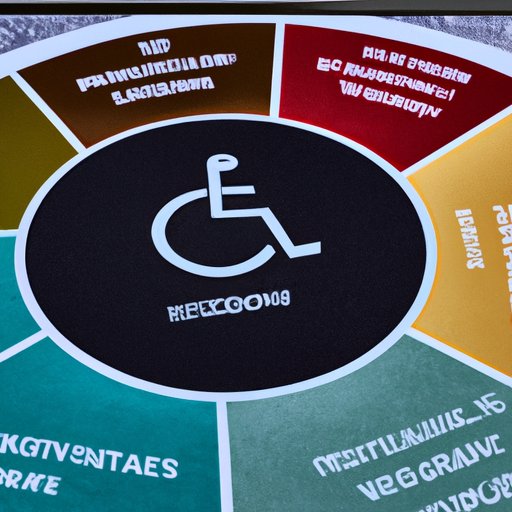
Exploring the Eligibility Requirements for Medicare
Medicare is a health insurance program administered by the federal government. It is available to people who are 65 years or older, certain people under 65 with disabilities, and those with End-Stage Renal Disease (ESRD). Understanding the eligibility requirements and when you become eligible for Medicare is essential for obtaining coverage and taking advantage of the benefits.

An Overview of When You Become Eligible for Medicare
Medicare eligibility is based on age, disability, and end-stage renal disease. People who are 65 years or older are generally eligible for Medicare Part A and Part B. People under 65 who have certain disabilities may also be eligible for Medicare Part A and Part B. Lastly, people with end-stage renal disease (ESRD) may be eligible for Medicare regardless of their age.
Facts and Figures: Understanding Your Medicare Age Eligibility
The eligibility age for Medicare is 65, but not everyone is automatically enrolled in the program at this age. Depending on your situation, you might be able to enroll in the program earlier or later than 65. Here are some facts and figures to help you understand your Medicare age eligibility:
Understanding the Age 65 Cutoff
The cutoff for Medicare eligibility is age 65, but it is important to note that you do not have to wait until age 65 to enroll. You can sign up for Medicare up to three months before your 65th birthday, and your coverage will begin the first day of the month you turn 65. If you wait until after your 65th birthday to enroll, your coverage will begin the first day of the month after you apply.
Coverage for Those Under 65
In certain cases, people under 65 may be eligible for Medicare. This includes people with certain disabilities, such as end-stage renal disease, as well as those receiving Social Security Disability Insurance (SSDI) or Supplemental Security Income (SSI). In these cases, individuals may be eligible for Medicare even if they are not yet 65.

A Guide to When You Can Start Collecting Medicare Benefits
Once you are eligible for Medicare, there are two main parts of the program: Part A and Part B. Part A covers hospitalization and other inpatient services, while Part B covers outpatient services. Here is a guide to when you can start collecting benefits from each part of the program:
When You Can Start Collecting Part A Benefits
If you are eligible for Part A, you can start collecting benefits immediately. However, if you are eligible for Part A but not Part B, you may be subject to a late enrollment penalty. This penalty is a monthly premium surcharge that will be added to your Part B premiums.
When You Can Start Collecting Part B Benefits
If you are eligible for Part B, you can start collecting benefits the first day of the month after you apply. However, if you wait more than 12 months after becoming eligible to enroll in Part B, you may be subject to a late enrollment penalty. This penalty is a 10% increase in your Part B premium for each full 12-month period that you could have been enrolled in Part B but did not.
How to Determine if You’re Eligible for Medicare
If you are unsure if you are eligible for Medicare, you should contact the Social Security Administration (SSA). The SSA can provide information about your eligibility and the application process. Once you have determined that you are eligible, you can complete the application process online or by phone.
What You Need to Know About Age-Based Medicare Eligibility
Age-based eligibility is one of the most common ways to qualify for Medicare. While eligibility is based on age, it is important to remember that there are other factors that can affect when you can start collecting benefits. Knowing when it makes sense to delay Medicare enrollment and comparing Medicare coverage with other types of health insurance can help you make the best decision for your individual situation.
“Medicare is a critical source of health insurance for seniors and those with disabilities,” said Dr. Helene Lipton, a geriatrician at the University of California San Francisco. “It is important to understand the eligibility requirements and when you become eligible for Medicare so that you can take advantage of the benefits.
(Note: Is this article not meeting your expectations? Do you have knowledge or insights to share? Unlock new opportunities and expand your reach by joining our authors team. Click Registration to join us and share your expertise with our readers.)
